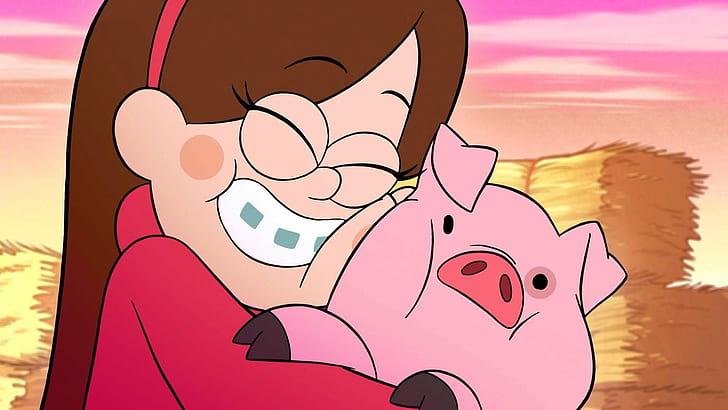
Top Ten Things – Cartoons often seem lighthearted at first glance. However, they frequently dive into deep emotional territory. In fact, some moments resonate more powerfully than live-action drama. These scenes carry truth. About pain. Growth. Identity. And even grief. Many of us cried. Not from childish sadness. But because the emotion felt real. So real. That it lingered. Long after the credits. Animation is a medium. But emotion is the message. Here are ten cartoon moments. That hit harder than anyone expected. For adults. For teens. And even kids. These are not just scenes. They are emotional memories. That never really fade away.
Steven always idolized his mother, Rose Quartz. But everything changes when he learns she was actually Pink Diamond. The woman he admired turns out to be someone with a secret identity. Someone who hurt others. Lied. And made selfish decisions. This twist changes how Steven sees himself. His powers. And his place in the world. The revelation is slow. Quiet. Painful. No screaming. Just silence. And heartbreak. It’s not just about truth. It’s about what truth does to a person. Especially when it breaks everything they believed.
In this episode, Marceline and the Ice King sing a song from their past. Slowly, viewers realize the Ice King used to protect Marceline during the Mushroom War. But now, due to mental decline, he doesn’t remember her. Marceline sings with tears in her eyes. While the Ice King stumbles through the lyrics. This isn’t just emotional. It’s tragic. A story about memory loss. And how we fade. From those we once loved. Many viewers felt this scene deeply. Especially anyone who’s watched someone they love slowly forget.
“Read More: Best Theme Parks in Thailand: Perfect Trip and Adventure Destinations with Family”
In the famous underwater episode, BoJack tries to deliver a note. He struggles the entire episode to say something kind. Finally, he succeeds. Only to find out the note wasn’t necessary. The moment breaks him. And viewers. There are no words. Just body language. And defeat. The animation speaks louder than a script. It captures loneliness. Desperation. And failure. All without dialogue. It’s a masterclass in emotional storytelling. One that quietly devastates. Without saying a word.
Stan Pines, the goofy con man, becomes a hero in the series finale. To defeat Bill Cipher, he agrees to have his memory erased. In doing so, he sacrifices everything he remembers. Including his bond with his twin brother. It’s not just sad. It’s painful. Because he does it willingly. To protect others. His brother watches helplessly. And viewers do too. A joke character suddenly becomes tragic. And we never see him the same way again.
“Read About: Social Media Evolution: 10 Platforms to Watch”
Zuko finally earns his father’s approval. But instead of joy, he feels empty. Alone. And wrong. He punches the mirror. Screams. And crumbles to the floor. The scene shows a boy who betrayed himself. To get something he thought he wanted. It’s powerful because it’s so real. Many people have achieved goals. Only to feel lost afterward. That’s what makes this moment unforgettable. It’s not fantasy. It’s human truth. Delivered through animation.
Homer takes a job he hates. Every day is miserable. But he stays. For Maggie. On the wall, he places baby photos around a motivational poster. The words change. Now they say, “Do it for her.” It’s a quiet moment. But crushing. We see his love. His sacrifice. Without any dialogue. Just a song. And pictures. A simple montage becomes one of the most emotional scenes in television. From a show known for laughter.
Pops chooses to end the battle against evil by sacrificing himself. He floats into space. Smiling. As everyone watches. In silence. Even the villains stop fighting. The moment is pure. Gentle. And powerful. It’s rare to see such grace in a goodbye. Especially in a show filled with absurd humor. Pops was never loud. But his final moment roared with meaning. He didn’t just save the universe. He gave it peace. With kindness.
Beth begins to question if she’s the original or a clone. Her father, Rick, won’t give her an answer. The uncertainty eats her alive. Is she real? Does she matter? The scene isn’t long. But it cuts deep. Because the question isn’t about cloning. It’s about identity. And value. The scene makes viewers question their own sense of self. What makes someone real? What gives life meaning? Rick doesn’t answer. Because the question was never his to solve.
In “Sleepytime,” Bingo dreams of the solar system. She floats through stars. Guided by love. Meanwhile, her mom tucks her in. Whispers goodbye. Not because Bingo is going anywhere. But because babyhood is ending. The stars shine. A lullaby plays. Parents cry. The beauty lies in simplicity. And in letting go. Bluey isn’t just a kids’ show. It’s a message to every parent. That their child won’t stay small forever.
Fry’s loyal dog, Seymour, waits for him every day. Outside a pizza shop. For years. Until he grows old. And lies down. Still waiting. Fry never came back. Because he was frozen. Seymour never knew. The final scene plays to soft music. As the seasons pass. The city changes. And the dog stays. It’s one of the saddest endings in animation history. Not because of drama. But because of loyalty. And time. And a love that never gave up.